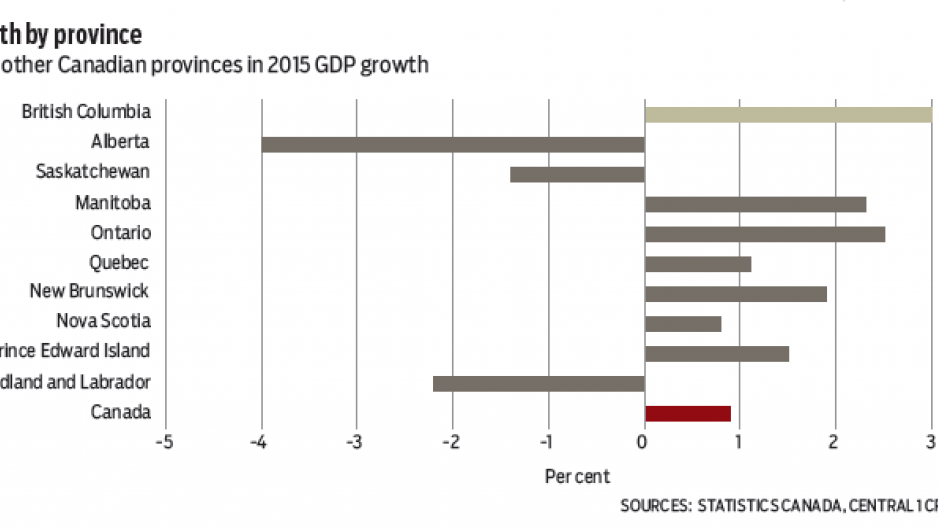It has been a lengthy wait, but the release of provincial gross domestic product (GDP) estimates confirmed our expectation that B.C. indeed led the country in economic growth in 2015. Provincial GDP expanded 3% last year, compared to 0.9% nationally, and aligned with our expectations. Ontario was the second-strongest performer with a 2.5% expansion while Alberta was the weakest link with a 4% contraction.
Service sectors underpinned growth with a 3.8% expansion and contributed to nearly all of the gain, while the goods sector slowed to 0.5% from more than 3% in 2014.
Leading growth sectors included retail sales (6.3%), finance and insurance (9.7%) and real estate, rental and leasing (4.9%). With retail growth led by building materials and gardening stores, and gain in these other sectors, it is no stretch to suggest that a strong housing market and rising home prices were a key contributor, in addition to a strengthening labour market and more tourism activity.

Adding to this was a rise in professional, scientific and technical services (3.1%) and a substantial education lift of 6.9% that reversed the teachers’-strike-led contraction in 2014.
General public-sector expansion was below average, with public administration up 0.8% and health care and social assistance up 1.7%.
B.C.’s goods-producing sector underperformed, mostly because of a 7.8% contraction in the mining and oil and gas sector.
However, the oil and gas component expanded 4%, reflecting increased natural gas production in the province, while mining fell 6.9% and support for these resources declined 35%. This reflects a combination of mine closures and less prospecting activity.
Construction held steady from a year ago despite a huge lift in residential activity of 8.8%. A decline in engineering construction, particularly oil and gas, was the key offset. Manufacturing improved by a modest 2.5%.
More recently, housing posted massive gains in housing starts. Builders broke ground in April at an annualized pace of 45,600 units in B.C.’s urban areas, up from a pace of 39,800 in March – about 25% above a year ago.
Growth was entirely a result of multi-family construction and was led by the Vancouver census metropolitan area.
With year-to-date starts up 45% through four months, housing is poised to be a strong source of economic growth for the province this year even as the pace eases. •
Bryan Yu is senior economist at Central 1 Credit Union.




